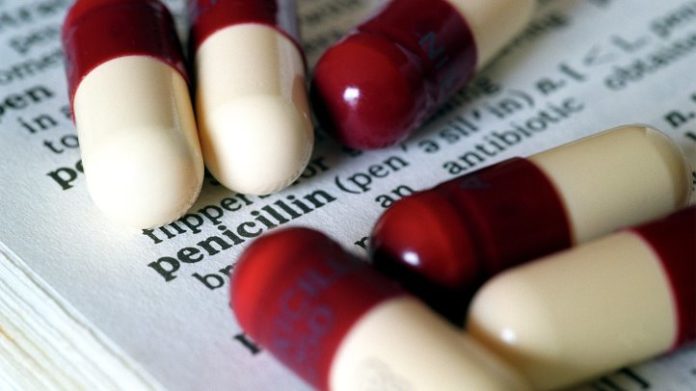Have you ever taken antibiotics for an infection, only to end up with severe diarrhea? It might not have been a virus or something you ate, diarrhea could have been caused by the antibiotics. The good news is that in most cases, diarrhea will clear up when the course of antibiotics is over and a regular diet is resumed. If it doesn’t, a physician can help in prescribing a treatment to get the bacteria in the digestive system back in harmony.
Normally the large intestine maintains a delicate balance with the billions of bacteria that live inside it. Most of these are the “good bacteria” and they both aid in digestion and fight off the “bad bacteria” (your intestine has some of those, as well). Antibiotics work by killing off bacteria, but they can’t distinguish between the “good” and the “bad” bacteria. As a result, the “good” bacteria in the colon gets destroyed, the delicate balance in the colon is disrupted, and loose stools may be the result.
Bad Bacteria Can Take Over
In 1% to 2% percent of people who take antibiotics, one type of “bad” bacteria in the colon may begin to grow and take over. This bacteria is called Clostridium difficile, and its numbers are normally kept at low levels by the healthy flora in the gut. When a person is treated with antibiotics and the amount of healthy bacteria is decreased, C difficile may begin to multiply and produce a substance that is toxic and can cause diarrhea. This is a serious condition and can result in a range of possible problems including C difficile-associated diarrhea, pseudomembranous colitis (PMC), and a life-threatening surgical emergency known as toxic megacolon.
Which Antibiotics Cause Diarrhea?
Antibiotic-associated diarrhea is generally more common when more than one antibiotic is prescribed during the same period of time, antibiotics are taken for an extended period of time, or a powerful, broad-spectrum antibiotic is used. Occasionally, even a mild antibiotic can result in a change in bowel habits.
Any time diarrhea or loose stools are experienced when taking antibiotics, the doctor that prescribed the drug should be told. Generally, antibiotic-associated diarrhea will improve when the course of antibiotics is completed. Sometimes it may be necessary to switch to another antibiotic. If you experience severe abdominal or rectal pain, the diarrhea continues for more than three days, there is blood in the stool, or there is a fever, don’t hesitate to call your doctor.
Many people who have diarrhea often end up dehydrated. Treating dehydration includes drinking plenty of water and sports drinks, such as Gatorade, Powerade, or Pedialyte for children. Chicken and beef broth help to replace sodium, and fruit juice and soda pop help replace lost potassium.
The diarrhea is actually serving a purpose—it is helping rid the body of the “bad” bacteria. Therefore, doctors do not usually prescribe antidiarrheal medications. If the toxins are allowed to stay in the body, they can cause more problems, so it’s best to let the body naturally expel them.
Role of Probiotics
Studies have shown that replacing the good bacteria in the gut can also be helpful in treating diarrhea. Lactobacillus is a bacteria that is found in some yogurt and in acidophilus milk. Look for yogurt with “live active cultures,” they contain Lactobacillus. Lactobacillus can also be taken in a pill form. A cocktail of several probiotics (Lactobacillus casei, Lactobacillus bulgaricus,and Streptococcus thermophilus) has also been shown to be helpful in preventing antibiotic-associated diarrhea, especially in people over the age of 50.
Prevention
The sooner antibiotic-associated diarrhea is diagnosed, the better, so always contact your doctor if you notice a change in bowel habits within six weeks of taking a course of antibiotics.
Antibiotics do not help with the common cold or the flu, which are both viral infections. If you see the doctor for these conditions, do not insist on a course of antibiotics, as it will not help you, and could lead to antibiotic-associated diarrhea.
Always Finish All The Antibiotics
If you are prescribed antibiotics for a bacterial infection, follow the doctor’s orders and take your medications on time. Always finish a course of antibiotics unless the prescribing doctor tells you to discontinue them.Stopping antibiotics before the bacterial infection is cleared up can result in creating a new strain of bacteria that is resistant to antibiotics. This, in turn, will result in the use of more antibiotics, creating a vicious circle.
A Word From Verywell
There’s no doubt that antibiotics do so much good by clearing infections that used to end people’s lives. However, antibiotics need to be used responsibly and with care. In some cases, physicians might recommend that probiotics might be added to the diet or as a supplement after taking antibiotics. Hand-washing is important in preventing further infections in people taking antibiotics, especially in those that are hospitalized. Diarrhea that is severe after a course of antibiotics should always be discussed with a physician in case further treatment is needed.




















































